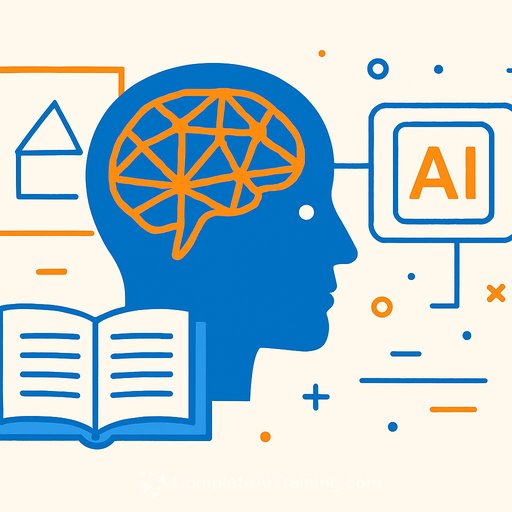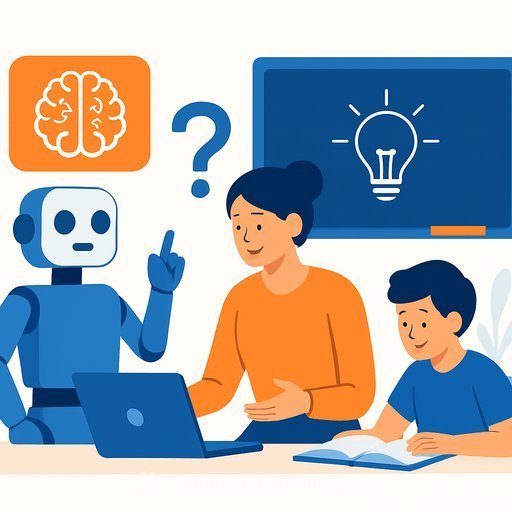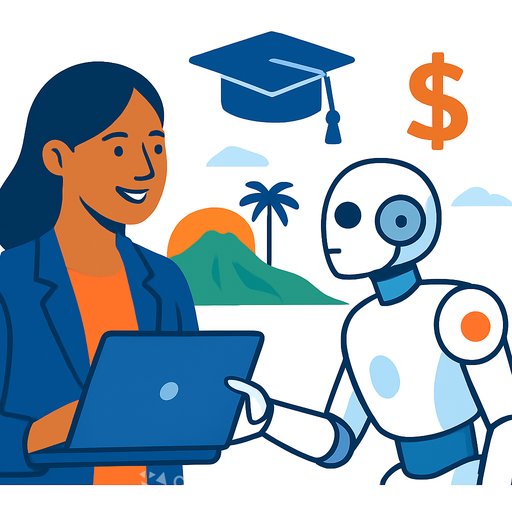Book Review: The Shape of Thought: Reasoning in the Age of AI by Richard H.R. Harper
This book is a clear reset. It's not a forecast about superintelligence or a tutorial on model internals. Harper argues that we misread AI because we expect it to think like us. Instead, he frames large language models as "word-geometry engines"-systems that assemble text with impressive fluency, yet with a narrow aim.
The core claim: intelligence can't be judged in isolation. It only makes sense relative to how, where, and why it's used. Models generate convincing language, but fluency isn't thought. They work through statistical associations, not lived intent.
Reasoning Is a Human, Situated Activity
Harper re-centers reasoning in real life. It's tied to social context, history, intentions, and the messy situations where choices are made. Machines operate with tokens, embeddings, and probabilities. They can mirror the surface of reasoning without the human grounding that gives it meaning.
Strip reasoning from its setting and you distort what AI can actually do. That distortion flows into product design, policy, workplace rollout, and public expectations.
Today's Systems Are Narrow AI
Despite broad use cases, current models fit the category of Narrow AI. They manipulate patterns with high skill, but they don't carry general agency or a human-like grasp of the world. The "word-geometry" lens makes the point: these tools arrange words in multidimensional spaces; they don't produce insight in the human sense.
If you equate plausible answers with intelligence, you overestimate what these systems deliver. Their strength is correlation, not thought. For a quick primer on Narrow vs. General AI, see this overview from Britannica.
Context Is the Real Test
Benchmarks are useful, but they're not the final word. Harper's point is simple: judge AI in the setting where it's used. A model can ace abstract tests and still fail in real environments where nuance, stakes, and human habits matter.
- What problem is being addressed, and why now?
- Who uses the system, under what constraints, with which skills?
- What values, risks, and social dynamics define success or failure?
- How will outcomes be checked, escalated, and improved over time?
A Better Analogy: Work Animals, Not Digital Minds
Harper offers a memorable comparison. Treat AI as earlier societies treated work animals-horses, camels, and similar: vital aids for specific jobs, never confused with fellow thinkers. The point isn't to diminish the tech; it's to set clean boundaries.
A tool can transform how we work without replicating thought. Clear limits make better design, smarter policy, and safer operations.
Cutting Through the Noise
Much discussion swings between hype ("we're close to human-level cognition") and dismissal ("it's all a parlor trick"). Harper refuses both. He credits the real capabilities while rejecting the leap to "intelligence."
His contribution is a human-context lens. Rather than arguing over model size or leaderboard scores, he asks how systems fit into daily life, institutions, and practices. That lens widens the conversation beyond technical performance to social fit and meaning.
What This Means for Teams Building or Buying AI
If reasoning isn't a byproduct of scale but a product of context, then process matters more than model theatrics. Build for fit, not imitation.
- Start with the workflow: map the handoffs, constraints, and failure modes.
- Define boundaries: what the system should do, must not do, and who is accountable.
- Keep humans in the loop where stakes, nuance, or judgment are high.
- Measure outcomes that matter to users, not just benchmark scores.
- Pilot in the real environment, observe actual use, then iterate.
Bottom Line
The Shape of Thought is less a takedown and more a reset. It shows how to use AI with clear eyes: respect its capabilities, reject the myth that fluency equals thought, and design around human context. That mindset leads to tools that help people reason better-without pretending to replace them.
Exploring more reading on AI? See our curated picks here: AI Books.
Your membership also unlocks:






